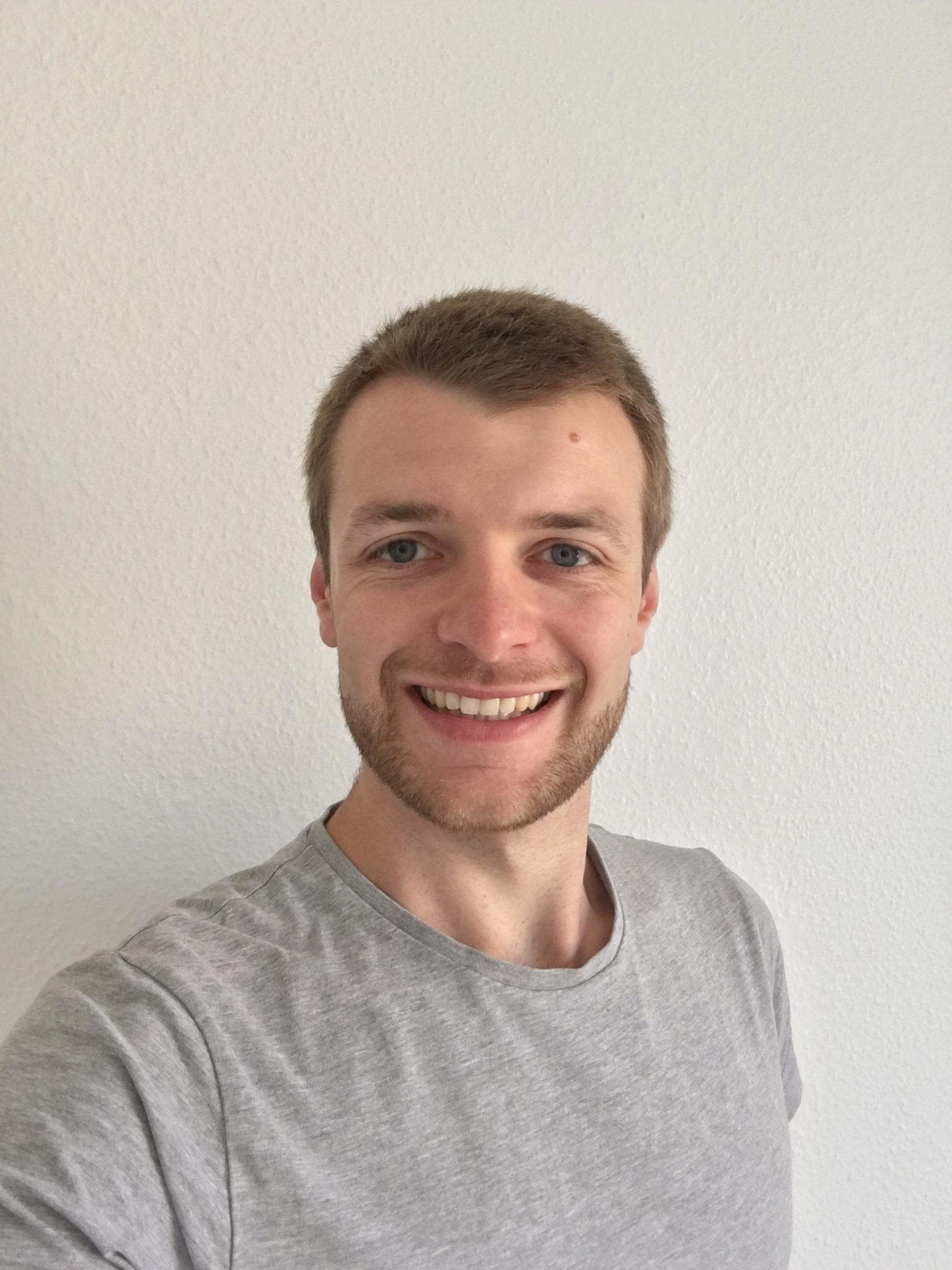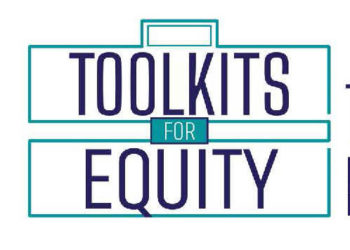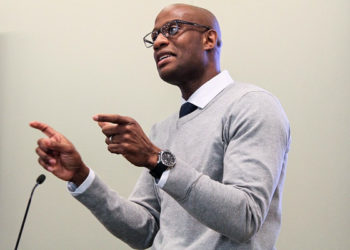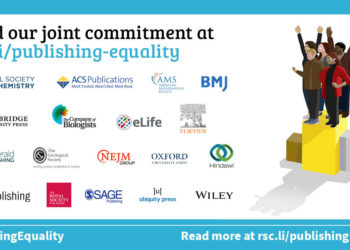Over the past several years, the Society for Scholarly Publishing (SSP) has deepened its commitment to advancing diversity, equity, and inclusion (DEI, EDI, or DEIA — to include accessibility) efforts across scholarly publishing. One of the outcomes has been to increase the DEI content at the Annual Meeting; for example, at least one of the Annual Meeting keynote speakers has addressed these critical issues for the last four years.
The 43rd SSP Annual Meeting featured four DEI-focused sessions — a keynote, featuring Dr. Joseph Williams, and three educational panels. To get a reading on their value to members of our community, and to bring new voices to The Scholarly Kitchen table, we put out a call for written responses on key takeaways. Thanks to the enthusiastic response, we are publishing four posts that each include a session summary from one of the panelists, as well as reflections and responses from members of our community. Reflections that cover more than one session have been broken up and included with the relevant post. Each of the four posts will cover the sessions sequentially:
- Fighting Racial Inequity in the Publishing Industry, with a summary by Cason Lynley (who introduced Dr. Williams) and reflections by Miranda Walker, Steven D. Smith, George Neame, and Dana Compton
- The Glass Ceiling You Don’t Know About Yet, with a summary by Simon Holt and reflections by Hannah Vinchur, Georgie Field, Nicola Poser, Damita Snow, and George Neame
- Accelerating DEI: Have the Data? Use the Data!, with a summary by Susan Spilka that includes results from the Vital Signs survey and poll conducted before and at the conference by TBI Communications, as well as reflections by Nicola Poser and Michelle Urberg
- Retrogressing Research and Limiting Diversity, with a summary by Steph Pollock, and reflections by Sneha K. Rhode, Susan J. Harris, Timothy McAdoo, and Jiayn Wang
It’s exciting to have feedback from such a wide sample of the scholarly publishing community, and to hear from diverse perspectives. To keep the conversation going on these important topics, we encourage you to add your thoughts to the comment thread.

Fighting Racial Inequity in the Publishing Industry
Session summary
Cason Lynley
For the SSP 2021 Annual Meeting, Dr. Joseph Williams returned for his second engagement, having previously led a pre-meeting seminar on dealing with microaggressions, as well as conducting a separate training session for the SSP Board in 2019. In anticipation, Alice Meadows conducted an interview with him on The Scholarly Kitchen that I highly recommend.
In his keynote address, Dr. Williams emphasized the critical importance of having the scholarly communications industry, as gatekeepers of scholarly research, engaged in DEI efforts. As an associate professor and a consultant, Dr. Williams engages regularly with various communities and corporations to increase diversity and inclusion efforts. While he concentrated his talk on the scholarly publishing community, his message was much more widely applicable.
Dr. Williams highlighted that racial disparities in scholarly publishing were not hidden and plenty of data existed, including the Diversity Baseline Survey by Lee & Low books. This data helped identify the unintentional ways that the industry may be privileging white norms, and provided areas for focus such as recruitment, retention, and mentoring.
He shared that shifting established structures and practices requires more than just intention. Having antiracist values is essential, but intention accounts for only around 30% of what makes people change their behavior. Dr. Williams also explained why the argument that diversification impacts the bottom line and productivity in a positive way (which it does) is not enough to sustain those efforts. Moral and ethical reasons have to be part of the conversation, as they are key drivers of lasting commitment and change.
Dr. Williams gave specific examples of barriers that interfere with moving from intention to behavior: apathy, anxiety, anger, and a false sense of powerlessness. Doing the hard work can feel overwhelming. It’s easy to become discouraged instead of pushing through tough barriers. For me, the top takeaway of the keynote was that it takes courage to fight racial inequality but we can start doing this work anywhere and anytime. We don’t need to wait for the perfect place or time to start doing this work. Too often, looking for perfect conditions creates a false sense of powerlessness that may stop someone from moving their intentions into action.
It takes courage to recognize and challenge prejudices and injustices, not just in other people but in ourselves. Dr. Williams recommended that we remember to center the perspectives of our marginalized colleagues, rather than just our own, on a daily basis. Antiracism is a lifestyle. Behavioral change will not happen without some conflict and the recognition that it can provide a valuable opportunity.
Dr. Williams applauded the powerful step that our industry has taken in identifying the problem and creating valuable resources like the C4DISC antiracism toolkits. Tools like these can help support new and existing participants in this work. He called on our industry to accept the discomfort necessary for real change, act on our intentions, not center ourselves, stand against the status quo, shore up the courage and commit long term, and support one another as we do this hard work.
This summary touches on a few points in Dr. Williams’s keynote speech. I hope that it entices many of you to watch the video (available in the SSP OnDemand Library). Dr. Williams was a vibrant and empathetic speaker — even virtually, which says a lot. Months after the SSP Annual Meeting, Dr. Williams’s message continued to resonate for me — where do I start to close the gap between intention and behavior? Anywhere. What does it take? Courage.
Community Reflections
Miranda Walker, Associate Director, Wolters Kluwer
“Even a seed has to push up against the ground to grow.”
Dr. Williams’ keynote gave us all permission to be intentional in our efforts to fight racial inequities in our industry. Some key takeaways:
- You cannot fix a problem until you acknowledge that it exists. There is a ton of research, easy to access, on the racial disparities of the publishing industry
- While there are far-reaching economic benefits to creating an equitable environment, we should also promote racial equity because it’s the right thing to do
- Antiracism is a value that not everyone shares. Therefore organizations have to take the lead, stay committed and accountable, and go beyond the current focus on DEI
- We all have a role in advancing DEI
I am guilty of what Dr. Williams calls “white centering” — I put the fear of making others feel uncomfortable over my own needs as a woman of color. In my effort to not create uncomfortable distractions for customers and colleagues, I have missed out on opportunities for teachable moments — “robbed them of opportunities to grow,” as Dr. Williams put it. Recent efforts by SSP and my own organization have empowered me and sensitized others to ask how something makes me feel or could be perceived by other people of color. For that I am grateful. It does not, however, make me any more comfortable when I explain to a colleague that what they said was inappropriate. I needed to hear Dr. Williams’s keynote and be reminded that conflict comes before change.
……No easy answers there. I’m really curious to know what questions you are asking yourself.
Steven D. Smith, DPhil, Associate Publisher, American Psychological Association
As Dr. Williams reiterated, we promote racial equity because it is the right thing to do – as individuals, communities, and organizations – quite apart from the various practical benefits. And, as research gatekeepers, we have a special responsibility (and opportunity) to address the lack of diversity in scholarly publishing.
We must foster antiracist leadership in our industry to ensure a diverse, equitable, and inclusive experience for all — internally, within our organizations, and externally, across the research communities we represent. But we run the risk of failing at the very first of what Professor Williams describes as various conceptual or psychological ‘hurdles’.
We need to find a way through the various hurdles we place between our intentions and behavior. How do we get beyond empty gestures or ‘performative wokeness’…? One useful idea gaining traction is to provide tools and methods, i.e., guidelines and best practices for promoting a more equitable and inclusive research and publication process – for example, by encouraging diversity in journals; incorporating inclusive reporting standards; equity and open science; improving representation while promoting inclusive peer review and editorial boards.
The American Psychological Association recently shared our new EDI Toolkit for Journal Editors with our community of editors. By implementing key recommendations alongside a dashboard for public accountability, we have another mechanism for getting beyond what Dr. Williams calls our ‘intention-behavior gap’. We need more!
George Neame, Publishing Executive, BMJ
The key message I took away [from Dr. Williams’ keynote] is how crucial it is to truly center someone else’s experiences when we discuss inequality, diversity, and accessibility. It’s one thing to be able to identify and denounce explicit racism or ableism, and another to be proactively engaged in discussing these concepts before the need for action arises.
Dana Compton Managing Director and Publisher, American Society of Civil Engineers
Dr. Williams’ keynote has stuck with me nearly daily since the SSP meeting. His focus on moving from inaction to action resonated, as I struggle with despairing over “BIG” issues like DEI and find myself questioning, “but what can I DO?” Dr. Williams’ descriptions of the hurdles that often cause our inaction mirrored my own experience in many ways.
I have returned again and again to one statement and one question that Dr. Williams raised:
- “Courage is not the absence of fear, but rather the judgment that someone else is more important than that fear.”
- “How comfortable are you right now?”
At the time of this keynote, we had recently revised our ASCE Publications strategic plan and identified DEI as one of six high-level strategies with a broad goal of “incorporating DEI as a central focus throughout all Pubs operations.” I was working through how we could undertake impactful tactics to work towards this lofty goal, and how I could support our team in prioritizing DEI amongst many other responsibilities. Dr. Williams’ words helped transform my leadership approach to DEI to empower our staff in these efforts.
Today, I regularly remind myself that, as a leader, I must:
- Help my team avoid inaction due to the enormity of the work, by encouraging and celebrating any and all progress
- Reassure my team that they need not fear that their jobs will be endangered because of their efforts
- Create safe, if not always comfortable, environments for discussion and debate
- Ensure the Publications DEI strategy is highly visible to our organizational and volunteer leadership, and gain buy-in
When I’m uncertain what to do next, I fall back on Dr. Williams’ question: “How comfortable am I right now?” I know I’m on the right track when the answer is “not very.” And then I remind myself about courage, and keep going.
Finally, I would like to extend my thanks to my exceptional ASCE colleagues who have engaged in this work. Most especially, to Taryn Dollings and Nikolle Waffle, co-chairs of our ASCE Pubs DEI Committee: THANK YOU for your continued COURAGE.




